////
Been a few weeks since I’ve gotten a newsletter out. Ebbs and flows and all that.
But I had someone reply to an email from a long time ago which got me looking through old issues.
Turns out there’s some good stuff in there. who knew.
So, here is some recycled content. And maybe a new thing or two. Who knows what will happen.
/////
Playgrounds over process.
I stumbled across this little write up:
Playgrounds over Paths
Today's standard design wisdom focuses on the design of linear paths. Sometimes they may branch, but they're ultimately a sequential set of steps towards a desired outcome.
Within complex systems, these paths often lack the flexibility to adapt to emergent conditions - users acting outside the "designed boundaries".
Instead of designing explicit paths, APD is oriented towards the design of playgrounds - limited spaces where the boundaries are defined by the mechanics of the system. Within these playgrounds, desire paths will naturally form based on different factors: cost, convenience, bounded rationality, etc.
In this context they are talking about designing user flows. Advocating for thinking about how users may act in non linear ways.
But I think there is something here relevant to the idea of process too.
In an agency setting, we think a lot about process. But there are some contradictions here. Most would agree that users are non linear. We often tear down the marketing funnel for being inadequate and overly linear in a world of infinite touch points. We think about campaigns as ecosystems rather than sequences.
But we seem incapable of letting go of linear when it comes to internal process.
I am going to think more on the matter, but the question I have in my mind now is “how can the agency “process” be more of a playground rather than a path? How do we set up parameters rather than sequences?
limited spaces where the boundaries are defined by the mechanics of the system. Within these playgrounds, desire paths will naturally form based on different factors: cost, convenience, bounded rationality, etc.
What does this look like when applied to the context of creative planning and development?
/////
/////
The Biggest Lesson I learned from my first year of Independent Strategy Work
I was going to try and make a list of things I learned, but there has really been just one thing that’s continued to stick with me (other than “save your expense receipts”)…
The lesson is the result of two unique things I came to understand
Strategy is not a necessary part of the process. We are a value add. We don’t make the thing. We make the thing more effective than it would have been otherwise.
If you are being paid to be somewhere5, you have an obligation to provide value.
These two truths came together in the following realization;
Compromising on strategy thinking or letting bad work get made without a fight is a failure of the strategist’s obligation.
Our job is to make work better and more effective than it would have been otherwise.
If you aren’t standing up for what you know to be true in that pursuit, you are ripping off the client.
Strategy is only worth it if we fight for the best work possible. Otherwise why are we there?
That doesn’t mean you should be difficult to work with. Strive for the opposite. But it does mean that if you’re on a project, the work damn well should be stronger than it would have been without you.
Demand what you need to make that happen.
/////
I believe that one of the greatest mistakes made by human beings is to want certainties when trying to understand something. The search for knowledge is not nourished by certainty: it is nourished by a radical absence of certainty. Thanks to the acute awareness of our ignorance, we are open to doubt and can continue to learn and to learn better. This has always been the strength of scientific thinking—thinking born of curiosity, revolt, change.
- Carlo Rovelli
/////
Efficiency is not the point. Not with ads. And not with doing the work. I can type faster than I can write, but outlines are more effective when done by hand.
/////
/////
/////
One of the most important skills as a planner is being able to recognize decisive moments in the process. The earlier they are, the more important they are. Just replace “day” with “work” or “creative output” in this image and it illustrates the point really well.
/////
STUDENT ANALYSIS VIA TUMBLR should be it’s own genre. A recent discovery:
QUOTE:
So I'm reading for an art history class, and Baudrillard is talking about the trends in colour usage from generation to generation (mostly in interior design, but there's definite spillover into fashion, architecture, etc.), and how every new colour movement is a direct rebellion against the previous one, like how the bright colours of the 60s/ 70s were a direct response to the austerity and seriousness of the WWII/postwar era, and how a shift back to organized, moralistic neutrals were a direct rejection of 60s/70s gaudiness, etc., and that all makes sense, people find their parent's style tacky, sure
But he goes on to observe how we've now been stuck in a lull of pasty tones and naturalistic finishes for some time, and I'm thinking yes, he's so right, but that's weird, because its been hanging around for so long, like what is it rebelling against anymore? What is it answering to? Well all I had to do was be patient because lo and behold, Baudrillard provides the following sentence, which caused me to completely wig out:
"..except of course, for the spheres of advertising and commerce, where colour's power to corrupt enjoys full rein"
And I'm like ooohhhhHHHHHH, so this colourless minimalist wasteland of a design principle:
Is maybe hanging on so stubbornly because this corporate hellscape:
is assaulting all of our eyes, inside and outside of our homes, every waking second, and is tainting the very concept of colour into something we can't relax around in our living spaces.
END FUCKING QUOTE.
It’s important to be honest about the reach and influence our industry has over society. Not in an intentional or nefarious way – But advertising impacts society the way waste run off impacts an ecosystem. The product is produced for some, but the build up of by-product impacts all of us.
/////
Good Strategy, Bad Strategy. (dropbox) (JP Castlin’s breakdown/critique is really good as well)
EAT YOUR GREENS. The must read by Wiemer Snijders (dropbox)
/////
/////
WEEKLY MONSTER
A t-shirt I made in 8th grade


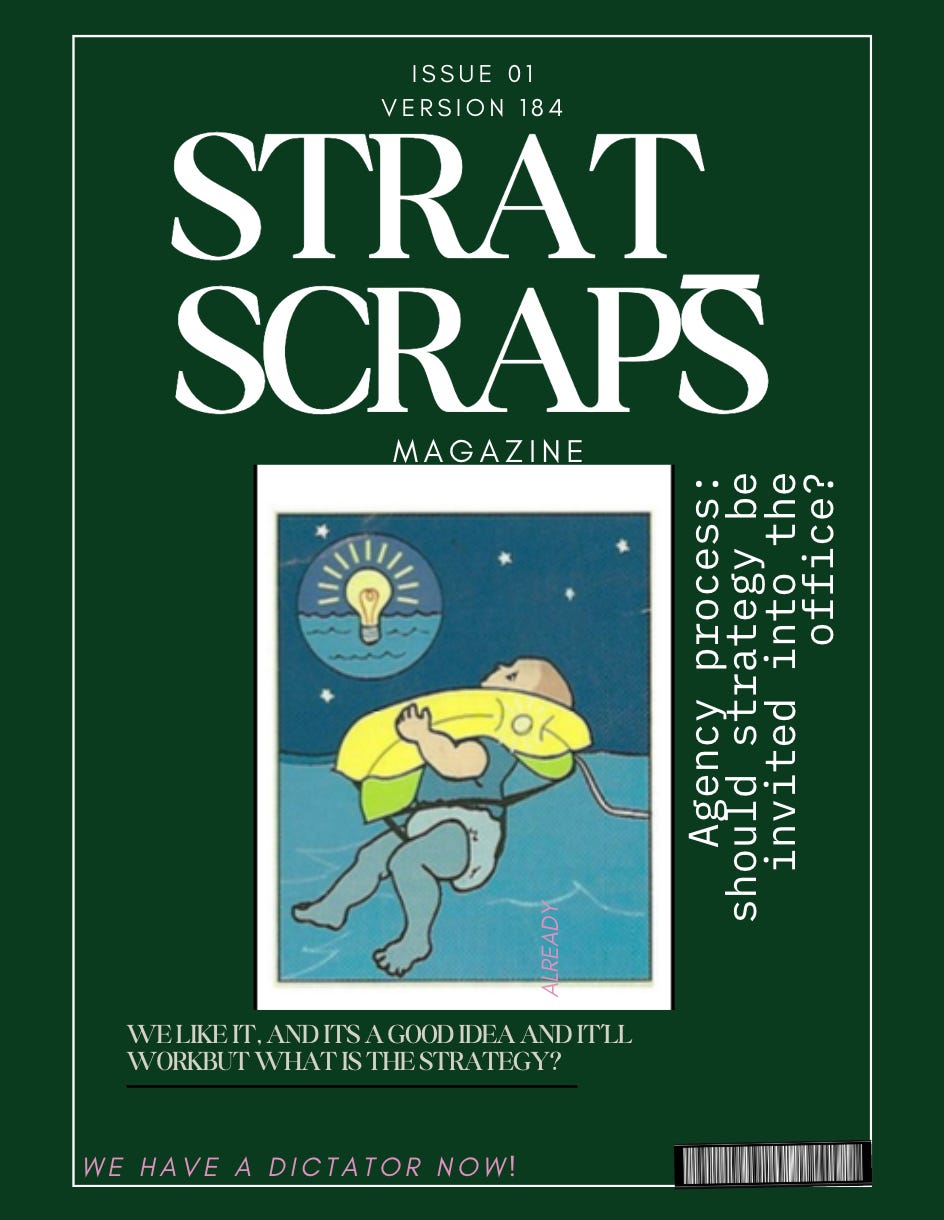


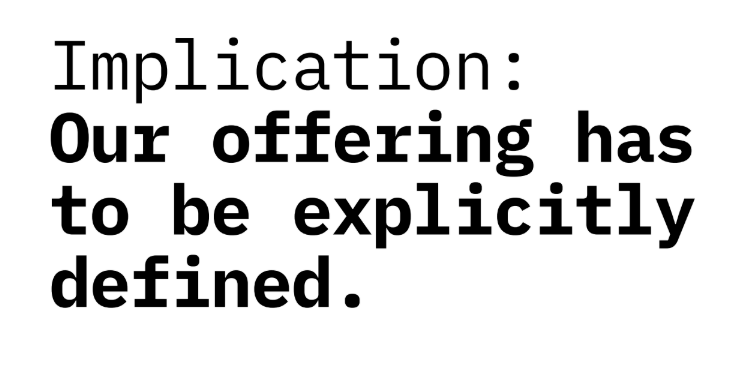

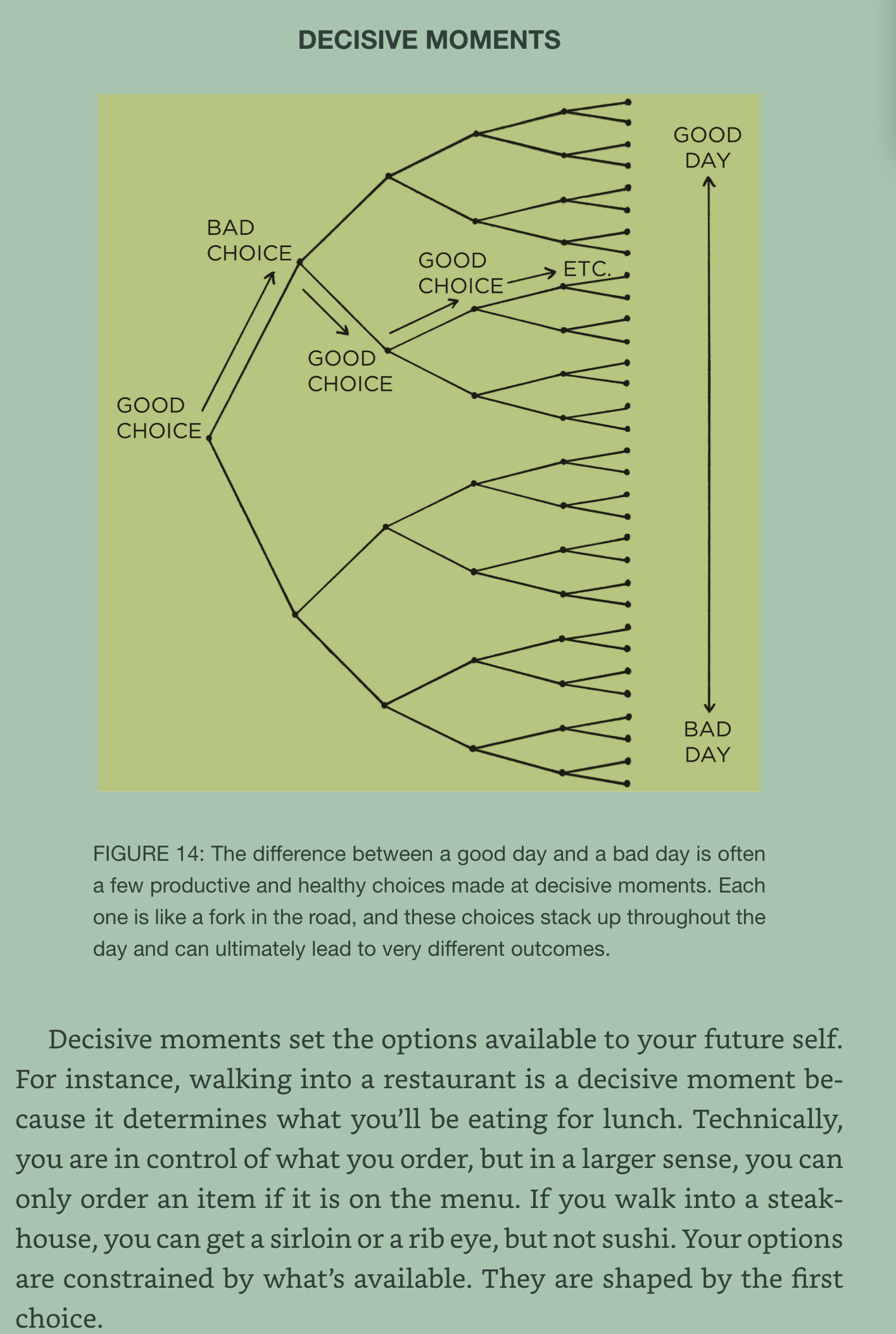


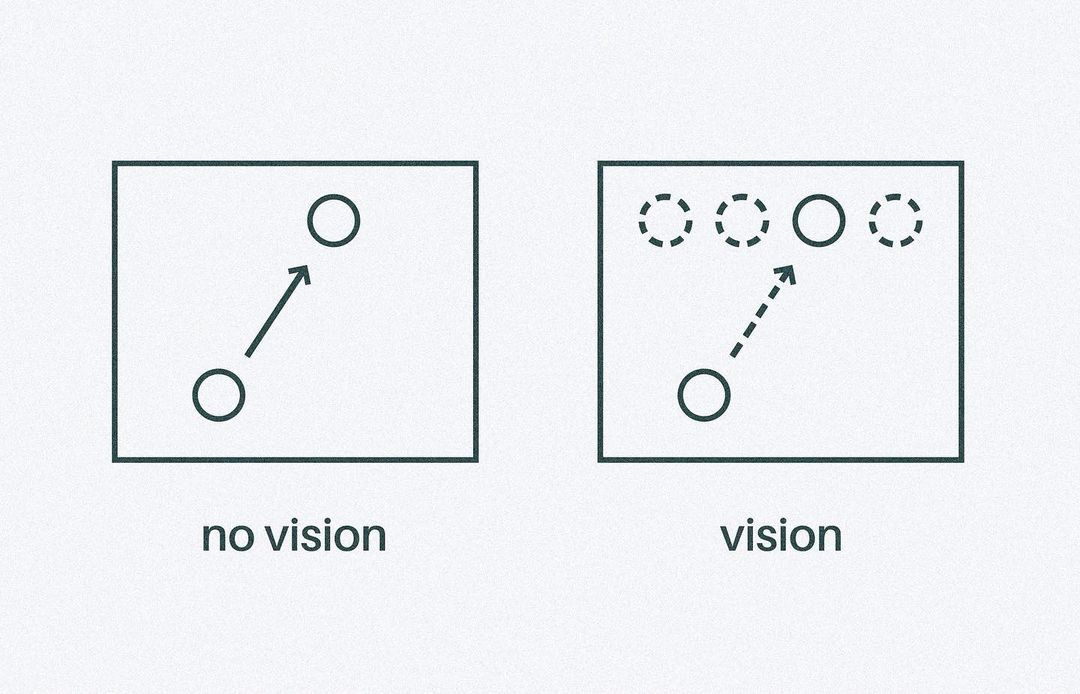
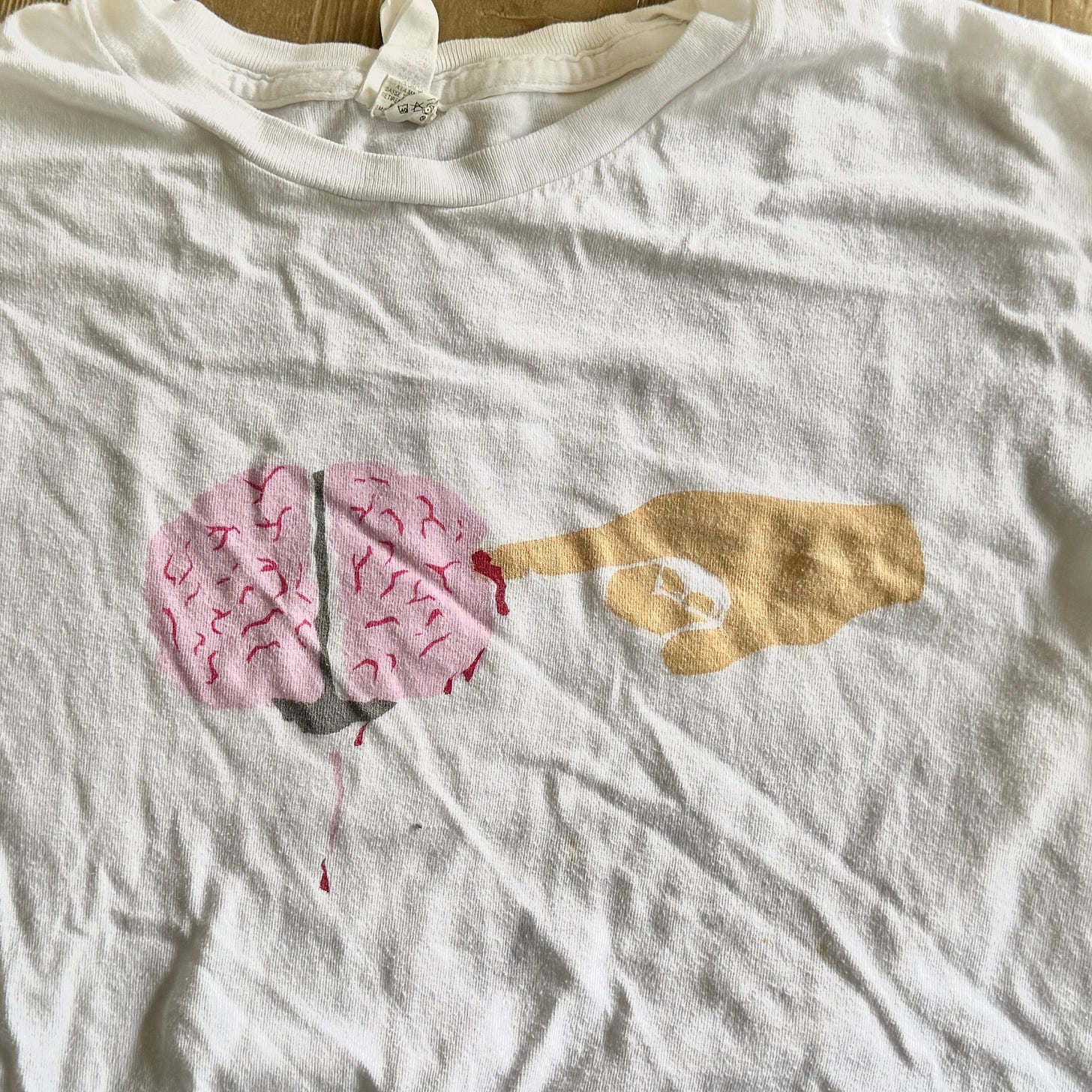
+1 on Eat Your Greens as a must-read #BananaChart4ever